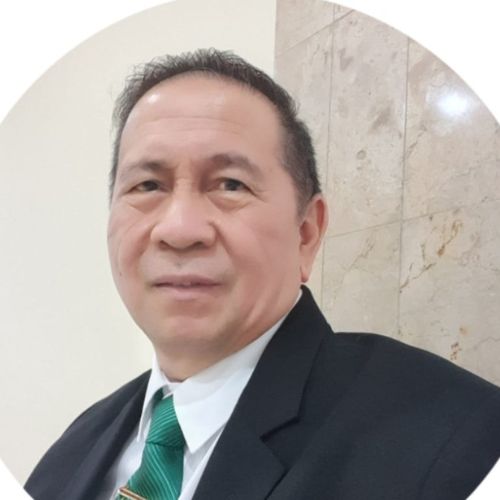
BIOGRAPHY
Dr. Felly Philipus Senewe is a Senior Researcher in Rural and Marginalized Community Health Research Group, Health Research Organization, BRIN. Previously, he worked as a senior Researcher at the National Institute of Health Research and Development (NIHRD) in Indonesia. He obtained his Medical Doctor from Sam Ratulangi University, Master of Public Health, and PhD from the University of Indonesia. He has worked on various projects regarding communicable and non-communicable diseases in collaboration with numerous health institutions across Indonesia. Currently, he’s coordinating a study on the health status in disadvantaged regions in Indonesia and serves as the resource person in the Indonesian Tuberculosis Inventory Study
Presentation Summary
This study provides information about local approach to preventing and controlling Malaria. The aim study to develop a malaria vector control technology with Biolarvacide approach (Bt H-14 breeding) in coconut through community empowerment and to explore community acceptance of malaria vector control technology using biolarvacide Bt H-14 in coconuts. Community acceptance of innovative bacteria breeding in coconuts is closely linked to programs in existing health centers, particularly regarding community empowerment.
Currently, the community’s sole involvement is in an insecticide-treated mosquito net program, and it has not yet extended to cross-sector collaboration. The Plan of Action for community activities is developed by the public health clinic, which is then submitted to the health office for assessment and approval. The community is highly enthusiastic and willing to engage in malaria prevention and control efforts in the region.This study can be implemented in area with endemic malarias particularly in regions abundant with natural resources (coconuts), such as Bangka Belitung Province.



